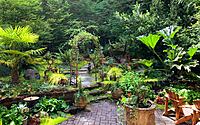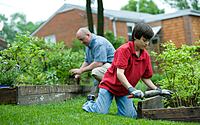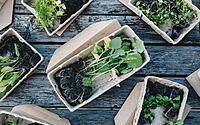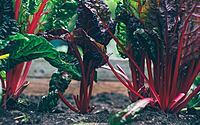Useful Tips to Help You Transform Your Garden
A stunning garden can provide you with a place to relax and escape the hustle and bustle of everyday life, as well as provide you with an abundance of fresh fruits, vegetables, and flowers. A beautiful garden doesn’t just happen; it takes time, patience, and effort to create one. But the rewards are more than worth it. Here are some useful tips to help you transform your garden into a verdant oasis.
Contact a Professional Gardener
If you are having trouble transforming your garden, or if you simply don’t have the time to do it yourself, you should consider hiring a professional gardener. Professional gardeners have the knowledge and experience to transform your garden into the oasis you’ve always wanted. They can help you choose the right plants for your space. Gardening professionals from H Potter advise on what plants work best in specific climates and soil types. When hiring a professional, be sure to ask for references and check their credentials. You can also ask your local nursery or garden center for recommendations. Once you’ve found a gardener you’re comfortable with, be sure to communicate your goals and expectations clearly. This will help them create a plan that meets your needs and budget.
Choose the Right Location
One of the most important things to consider when starting a garden is finding the right location. The perfect spot for your garden will get plenty of sunlight, have good drainage, and be close to a water source. To find the best location for your garden, start by observing the sun’s path across your yard throughout the day. Then, make sure the area you select has good drainage by testing it with a shovel. Finally, choose a spot that is close to a water source so you can easily water your plants. Make sure to avoid any areas that are prone to flooding or erosion. With a little bit of planning, you can find the perfect location for your garden.
Prepare the Soil for Your Garden
If you want to have a healthy and successful garden, preparing the soil is one of the most important steps. The type of soil you have will determine what kind of plants will grow well, how often you need to water, and how often you need to fertilize. There are three main types of soil: sand, clay, and loam. Sand is the largest of the soil particles and does not hold water or nutrients well. Clay is the smallest of the soil particles and holds water and nutrients very well but can become hard and compacted. Loam is a mixture of sand, clay, and organic matter and has good drainage and aeration properties.
The best way to determine the type of soil you have is to take a sample and have it tested. Once you know the type of soil you have, you can take steps to improve it. Adding organic matter to any type of soil will improve its structure and drainage. compost, manure, and shredded leaves are all good additions to your garden soil. If you have sandy soil, you may need to add organic matter more often than if you have clay soil.
If you have heavy clay soil, adding sand will improve drainage. Be careful not to add too much sand or your soil will become too sandy and won’t hold water or nutrients well. A 50/50 mix of sand and clay is ideal.
Water Regularly
One of the most important things you can do for your garden is to water it regularly. This will ensure that your plants and soil stay healthy and hydrated. There are a few different ways you can water your garden, such as with a hose, sprinkler, or watering can. You can also use different equipment to help you water, such as a drip system or soaker hose. How often you water your garden will depend on a few factors, such as the type of plants you have, the weather, and the amount of rainfall. However, as a general rule, you should water your garden at least once a week.
There are many benefits to watering your garden regularly. For one, it helps to prevent your plants from becoming stressed. This is because water helps to transport nutrients and minerals to the plant’s roots, which are essential for growth. Watering also helps to keep your soil healthy by preventing it from becoming too dry or compacted. In addition, watering helps to control weeds and pests, as well as keep your garden looking its best.
Control Pests and Diseases
One of the most important things you can do to have a healthy garden is to control pests and diseases. Pests and diseases can destroy your plants, and make your garden look unhealthy. There are many ways to control pests and diseases, and you should choose the method that best suits your garden. If you have a pest problem, you should first try to identify the pest. Once you know what kind of pest you are dealing with, you can choose the best method of control. There are many effective pesticides available, but you should always read the label carefully before using any pesticide. Some pesticides are more harmful to humans and animals than others. If you use a pesticide that is too strong, you could end up harming yourself or your family.
There are many benefits to transforming your garden. By following the tips above, you can create a beautiful and healthy garden that will last for years to come.
- by Matt Watts






